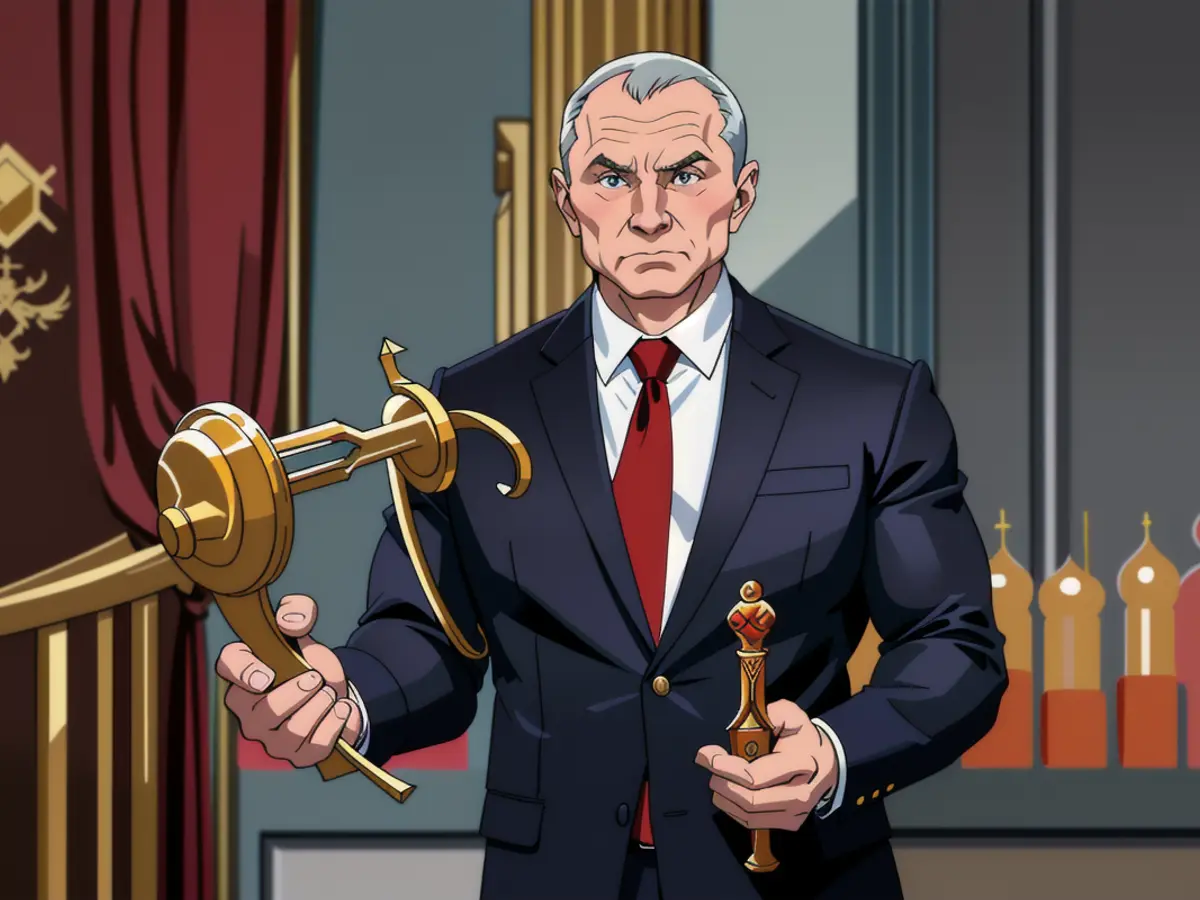Russian leader Putin announces temporary "Easter ceasefire," yet Ukraine asserts persistent Russian assaults persist.
In a surprising move, Russian President Vladimir Putin announced an Easter truce in the ongoing conflict with Ukraine, leaving Kyiv questioning the sincerity behind this brief ceasefire. Starting at 11 a.m. ET on Saturday, all hostilities would allegedly halt between Moscow and Ukraine, according to Putin, to gauge Ukrainian intentions towards reaching a permanent peace.
However, Ukrainian officials quickly accused Russian forces of continuing their assaults just hours after the announcement. President Volodymyr Zelensky revealed in a Saturday night address that Russian units were still firing artillery and engaging in offensive operations in certain areas. Kyiv has maintained a skeptical stance towards Putin's truce declaration, citing his history of inconsistency and the ongoing refusal to agree to a US-proposed 30-day ceasefire.
Despite the questionable commitment to the truce, Zelensky urged for an extension to 30 days, stating that a brief 30-hour period would be insufficient to establish genuine confidence for peace. He argued that such an extended truce could give war-weary Ukraine a chance at lasting peace.
As the war enters a crucial phase and US-led negotiations stall, the timing and duration of Putin's unilateral truce have raised eyebrows. Coming mere days after the US administration expressed its dwindling patience with Russia and Ukraine, and shortly after Russia announced its forces had pushed Ukrainian troops from one of their last remaining strongholds, the truce appears to be more of a headline-grabbing gesture than a sincere peace initiative.
In the midst of these contentious negotiations, Ukrainian Foreign Minister Andrii Sybiha criticized Russia's lack of commitment to a full and unconditional 30-day ceasefire, as proposed by the United States since March. Meanwhile, the pronouncement of the truce was not met with godly fervor by the Russian Orthodox Church, which has long been a faithful supporter of Putin and an advocate for the war in Ukraine.
With numerous instances of shelling along the front lines reported since the truce was announced, it remains unclear whether Putin's Easter ceasefire will amount to more than just headlines. For now, the people of Ukraine continue to endure the hardships of war, hoping for a day when they can celebrate peace once more.
- The world is watching as Europe grapples with the sincerity of a proposed ceasefire in war-and-conflicts between Russia and Ukraine, announced by Russian President Sergei Putin for the Easter holiday.
- Despite Putin's announcement, Ukrainian officials have accused Russian forces of continuing attacks, questioning the commitment to the truce.
- In light of these concerns, Ukrainian President Volodymyr Zelensky has urged for an extension of the truce to 30 days, stating that it could provide a crucial opportunity for lasting peace in the region.
- The timing of Putin's unilateral truce has raised eyebrows, coming just days after the US administration expressed dwindling patience with Russia and Ukraine.
- Amidst these delicate negotiations, criticism of Russia's lack of commitment to a full and unconditional ceasefire has come from Ukrainian Foreign Minister Andrii Sybiha, while the Russian Orthodox Church, a historic supporter of Putin, has also shown skepticism towards the truce.








